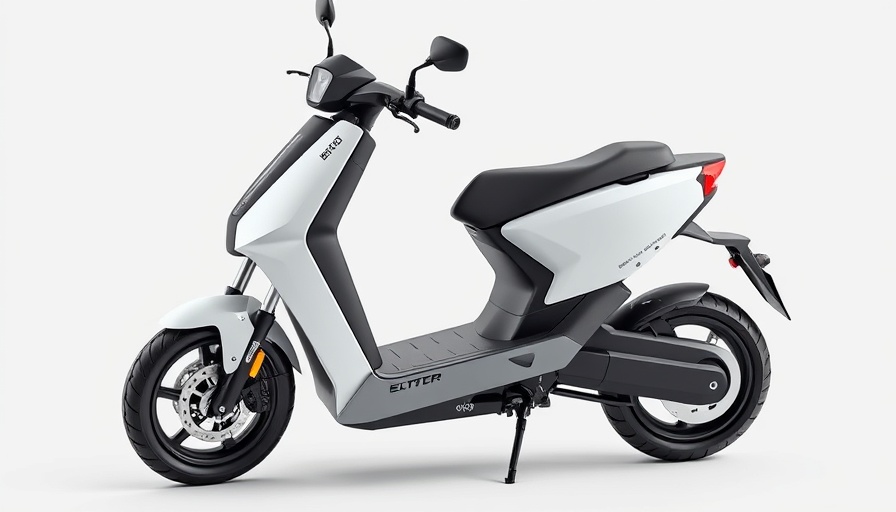
Explore the New Olto: The Affordable Electric Scooter Revolutionizing Urban Transit
New York-based startup Infinite Machine has unveiled its latest offering in the micromobility space, the Olto electric scooter, aimed at making personal transportation more accessible. Set to hit the market at a price of $3,495, this innovative scooter boasts impressive features that could potentially drive a shift in urban mobility.
Specifications That Stand Out
The Olto is designed for everyday commuting with a range of up to 40 miles, powered by a convenient swappable 48V lithium-ion battery. Riders can expect speeds of 20 miles per hour in bike lanes and up to 33 miles per hour off-road, thanks to its robust 750W rear hub motor. Safety features include high and low beam headlights and turn signals, enhancing visibility on city streets.
What truly sets the Olto apart is its modular design. Users can customize the scooter with various attachments such as child carriers, rear racks, or baskets. It even includes fold-out pedals, offering a pedal-assist option for those who prefer a more traditional biking experience. Furthermore, its dual-suspension frame allows for two-person seating, making it a versatile alternative for couples or friends.
A Competitive Entry in the Micromobility Market
At a price point of $3,495, the Olto is significantly more affordable than Infinite Machine's flagship P1 model, which retails for $10,000. This shift in pricing strategy aligns with the growing trend towards more affordable electric mobility solutions, addressing the needs of budget-conscious consumers.
The launch of the Olto comes at a critical time for the micromobility market, which has witnessed several challenges in the last few years. Companies like Rad Power Bikes have struggled, showcasing the difficulties faced by brands in gaining traction in a competitive landscape. Infinite Machine, however, is focusing on creating a robust presence in the U.S. market, with aspirations to expand globally in the future.
Challenges and Opportunities in Urban Mobility
Entering the U.S. market presents potential hurdles for Infinite Machine, especially with established competitors facing significant challenges and restructurings. Brands like VanMoof and Cake have been forced to restructure, highlighting a turbulent micromobility landscape.
Despite these challenges, Infinite Machine remains optimistic about its product's unique selling proposition. Founder and CEO Joseph Cohen expressed a belief in the brand's ability to deliver an innovative design that stands apart from current market offerings. “What we can bring as an American company is an amazing product sensibility that doesn’t exist with the products in the market,” Cohen stated, underscoring their focus on quality and usability.
The Future of Micromobility: Insights and Predictions
As cities continue to evolve and populations swell, the demand for sustainable and efficient transportation options becomes more pressing. Electric scooters like the Olto can play a pivotal role in reducing urban congestion and promoting environmentally-friendly travel options. The flexible nature of the Olto, combined with its affordability, may very well position it as a leading contender in urban transportation strategies.
Looking ahead, the wave of electric vehicles—and scooters in particular—could further reshape our daily commutes. With urban areas increasingly implementing bike lanes and EV charging stations, the landscape for e-scooters seems ripe for growth. Should Infinite Machine and similar startups successfully navigate the existing market challenges, the future could herald a new era of affordable, modular, and eco-friendly transportation.
Conclusion: The Call for Sustainable Mobility Solutions
As the conversation around sustainable urban transportation continues to gain momentum, innovations like the Olto electric scooter could inspire a new wave of commuters. Infinite Machine’s mission to provide user-friendly, modular scooters may nurture a shift in how we think about personal transportation. Taking action now to explore these alternatives can influence a collective adoption of sustainable practices and contribute to healthier cities.
 Add Row
Add Row  Add
Add 




Write A Comment